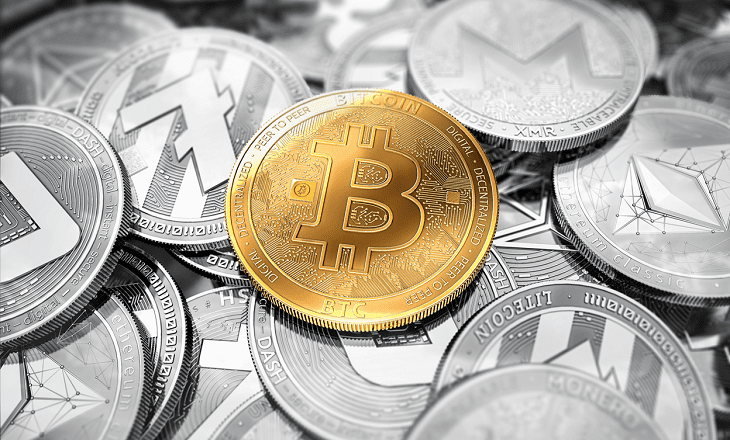The U.S. Congress holds hearings from time to time, but the controlling party in either the House of Representatives or the Senate determines the agenda and the attendees. The Democrats control the House now, and the Republicans remain in control of the Senate. In their new role, Democrats called a hearing of the nations’ largest banks, the first one of its kind since the financial crisis in 2009. Seven CEOs attended, while Wells Fargo was absent, its CEO having recently resigned under a cloud of scandal. The session lasted for hours and covered several topics, including crypto matters.
As was reported: “The financial giants represented at the gathering include seven of eight global “systemically important” banks, which paid a total of nearly $164 billion in fines during the last 10 years, according to a committee memorandum.” Much of this pecuniary assessment was due to the foreign exchange rate-fixing scandal that grabbed news headlines for years, having been the largest of its kind in history. Maxine Waters, a Democrat from California and Chairman of the Financial Services Committee, noted that profits over the past decade were nearly five times the level of fines assessed. Had banks really taken note and changed or were the fines merely a cost of doing business?
The general response to this first series of questions posed to all attendees was that each had made major changes within their respective organizations. Morgan Stanley has eliminated 70 business lines, while JPMorgan Chase had cut 17 units. The claim was that each of the banks had definitely gotten the message, downsized, and now, in their new leaner and meaner state, they were much more easily managed and were, as a rule, taking on less risk. As a group, their contention was that they were much more prepared to react to a sudden downturn in business, much more so than they had been before the financial crisis.
Rep. Warren Davidson (R – Ohio) was also on the committee. The previous day, he and his supporting representatives had reintroduced the Token Taxonomy Act, with the expressed purpose of clarifying existing confusion in all legislation that attempts to deal with the new digital age. Davidson supports innovation in the crypto space and does not want opposing agencies and states to stifle creativity. His bill is intended to introduce “certainty for businesses and regulators in the U.S. blockchain industry, as well as clarifying conflicting state initiatives and regulatory rulings that have confused the issue.”
During his allotted time, Davidson focused on crypto during his opening remarks: “The industry is entering into a new era of innovation, wherein blockchain technology is transforming existing financial systems, as well as cybersecurity. The U.S. is currently staggering behind due to regulatory certainty issues”. He then directed his questions to Jamie Dimon of JPMorgan Chase and Charles Scharf of the Bank of New York Mellon.
Dimon was accosted due to his constant “crypto bashing” in the past, but then acknowledging the beauty of the blockchain, when his bank announced its “JPMCoin” project. Davidson questioned which position was the real one. Dimon responded: “We are supportive of cryptocurrencies as long as they are properly controlled and regulated. The part that is not real is that cryptocurrency is not supported by anything, there is no value behind it other than what the next person will pay.”
Scharf’s bank’s website states that it is not inclined to experiment with crypto matters, as long as regulators are unclear on how they will apply existing regulations. Scharf explained:
Cryptocurrencies are very early in their existence. They are not significant today to speak of in terms of being used as a real currency to move value, and so we are actively thinking about what we want to do. One of the biggest issues that we have relates to any money laundering and KYC [Know Your Customer].
The more raucous session may have been across the hall in the Senate, where two economists, each representing completely opposite sides of the crypto debate, were holding court with the U.S. Senate Committee on Banking, Housing and Urban Affairs. One reporter quipped: “Advocacy versus skepticism. “Dr. Doom” versus “Captain Coin.” Whatever you want to call it, two divergent viewpoints on the topic of cryptocurrency collided before a group of U.S senators on Thursday.”
Economist Nouriel Roubini, have earned his stripes for predicting the 2008 financial crisis, testified about crypto activities from a totally negative point of view: “Crypto is the mother and father of all scams … [and] blockchain is the most over hyped technology ever and is no better than a glorified database.” He and Jamie Dimon may have something in common, but his shrill comments did not win the day.
Coin Center director of Research Peter Van Valkenburgh was a formidable foe, countering each statement by Roubini with logical arguments: “Bitcoin is the world’s first globally accessible public money. Is it perfect? No. Neither was email when it was invented in 1972. Bitcoin’s not the best money on every margin. It’s not yet accepted everywhere. It’s not used often to quote prices and it’s not a stable store of value. But it is working, and the fact that it works without intermediaries is amazing.”
Van Valkenburgh countered Roubini’s position that crooks and tax evaders hid behind the anonymity of blockchain systems by noting that every law enforcement official and investigator that he has talked to loves the public audit-trail nature of the blockchain, contending that, “It’s not anonymous at all.”
He concluded by saying:
[Blockchain] is not yet ready to answer all of these problems but it is our best hope, and as with the Internet in the 90s, we need light-touch pro-innovation policy to ensure that these innovations flourish in America for the benefit and security of all Americans.
